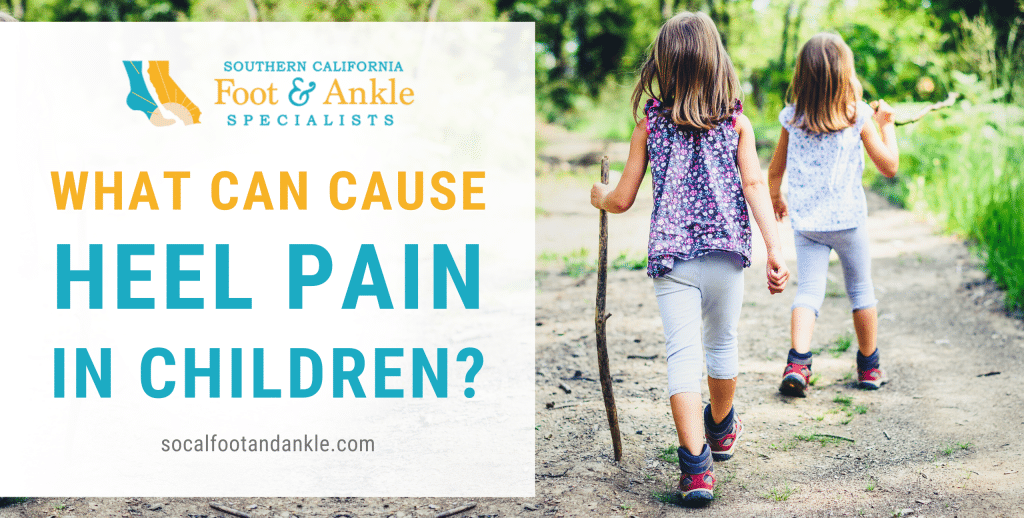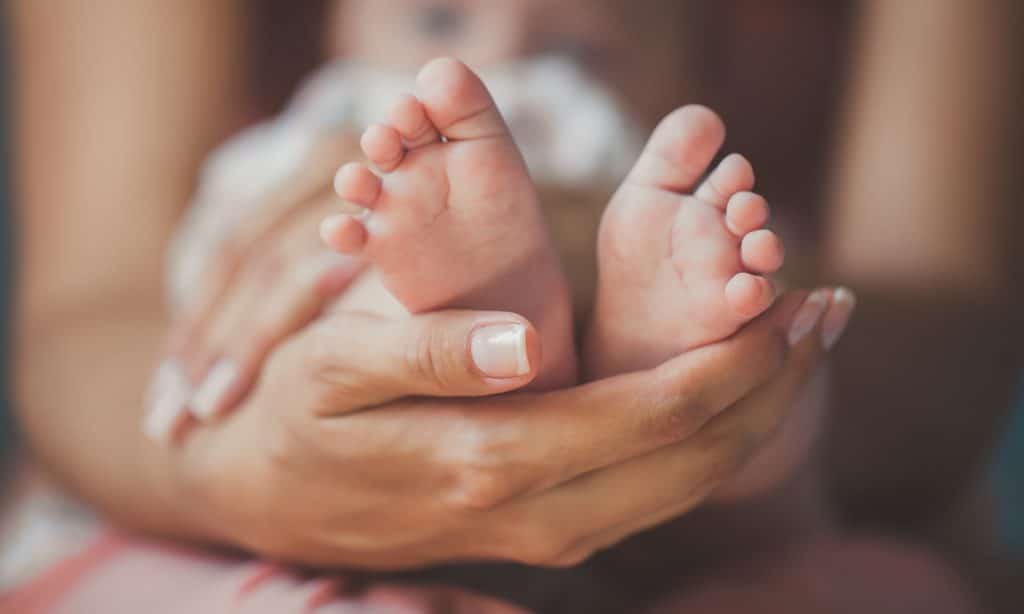When Your Child Has Heel Pain
Heel pain does not seem like something a child would have—at least not to a grown-up. Heel pain feels much more like an “adult” sort of problem, something that comes with age and wear and having to work all day.
That’s likely just some elder envy showing, however. Children can have heel pain, and—just as with adults—it’s important to address persistent symptoms and not just wait and see if they will ever subside.
Odds are very likely that the causes of chronic heel pain will never resolve on their own, or at least in short order. The sooner you take action to treat the problem, the faster you can provide more comfort to your child and help ensure lower risks of future trouble.
Does My Child Have Heel Pain?
Depending on your child’s age and willingness to be up front with you, it is not always easy to know whether something is actually causing them pain.
That can make for a very frustrating situation as a parent, but it is never something you should blame yourself for. You do not have magic mind-reading abilities, as much as you may want your child to believe so.
Children often try to hide pain out of a sense of fear. They might be afraid that your knowledge of their heel pain might mean they can’t do what they love anymore, or that they will let you or others down. They might also be afraid that having their heel pain treated may cause even more pain than what they’re currently enduring.
As a parent, you can try to calmly assuage these fears with your child, if you sense they are playing a role. It may very well be worth a talk if you see any potential signs of heel pain in your observations:
- Walking on toes, or favoring the front of the foot while walking (this can be a normal part of very young children learning to walk, however).
- Recent difficulty participating in sports or activities your child has normally loved or shown no trouble with.
- Wishing to stop beloved activities sooner than normal, or making excuses to not participate.
There may be reasons other than heel pain for each of these situations, but they still warrant a gentle conversation with your child, nevertheless. If you do suspect heel pain but are not certain, please do not hesitate to contact us with your concerns.
What Can Cause Heel Pain in Children?
Heel pain in children is often linked to the growth and structure of the foot.
Many adults tend to have plantar fasciitis, which can result in pain after long periods of rest. Once they get a chance to move around some, the pain tends to lessen or subside.
Heel pain in children does not usually to work in a similar manner. In most cases, moving around and activity tends to prolong or worsen their pain. This can be due to the added sensitivity of their growing feet, especially against the repetitive impacts of running, jumping, and playing.
One of the most common forms of heel pain in children is calcaneal apophysitis, also known as Sever’s disease (although it’s not a disease in the infectious sense). Until around the age of 14, the heel bone (calcaneus) is developing and growing quickly, aiming for an adult size. The bone has a growth plate (physis) where much of this new bone development occurs, but this area can be weak and susceptible to stress during growth.
When there is strain and repetitive stress in the area of the growth plate, caused by the pulling of tendons or repetitive impacts of running, the growth plate may become irritated and inflamed. This leads to tenderness and pain felt along the bottom and back of the heel.
Calcaneal apophysitis most frequently happens in active children between the ages of 8-14, but excess weight can also be a factor in triggering the condition.
Other potential causes of heel pain in children can include:
- This can include acute fractures (standard breaks) in the heel or surrounding bones, but more commonly a child might experience stress fractures in the area. These are hairline crack in the surface of the bone that can be the result of repetitive impacts and/or sudden increases in active intensity.
- An inflammation of a fluid-filled sac (bursa) that serves as protection between the Achilles tendon and heel bone. We tend to see this as a result of poorly fitting footwear, but can also be caused by injuries to the heel.
It is also possible for plantar fasciitis and other conditions to develop in children as well, especially in relation to an overuse injury and/or abnormalities in foot structure. If too much strain or intensity is being placed upon a tissue within the foot, it can lead to a lasting, painful problem without proper treatment.
How Heel Pain in Children is Treated
The best treatment for heel pain—whether in children or adults—is identifying the underlying condition and all the factors that are contributing to it. Once we have that dialed in, we can recommend the best forms of treatment to address those problems and help keep them from causing recurring issues.
Treatments for children’s heel pain may include:
- A reduction in activity, at least temporarily. Injured or inflamed tissues in the foot may need a chance to recover.
- Physical therapy, in the form of stretches and exercises to better condition problematic areas.
- Custom orthotics, to provide better distribution of weight over the foot and take excess stress away from trouble spots.
- Temporary cushioning in the form of heel inserts, which can be especially helpful for calcaneal apophysitis.
In more severe cases, we may need to immobilize the area for a time. Surgery might also need to be considered if more conservative forms of treatment would not have any significant effect. We will be sure to fully discuss all potential treatment options with you before a decision is made going forward.
Healthy Heels for a More Comfortable Future
Addressing persistent heel pain instead of “waiting it out” is always the preferred choice. Identifying issues now can help your child prevent problems from them in the future—or at the very least manage them more effectively.
Call our Ladera Ranch office at (949) 364-9255 (WALK) to schedule an appointment with us. If you prefer to contact us electronically, fill out our online contact form instead and a member of our staff will reach out you during our normal office hours.


